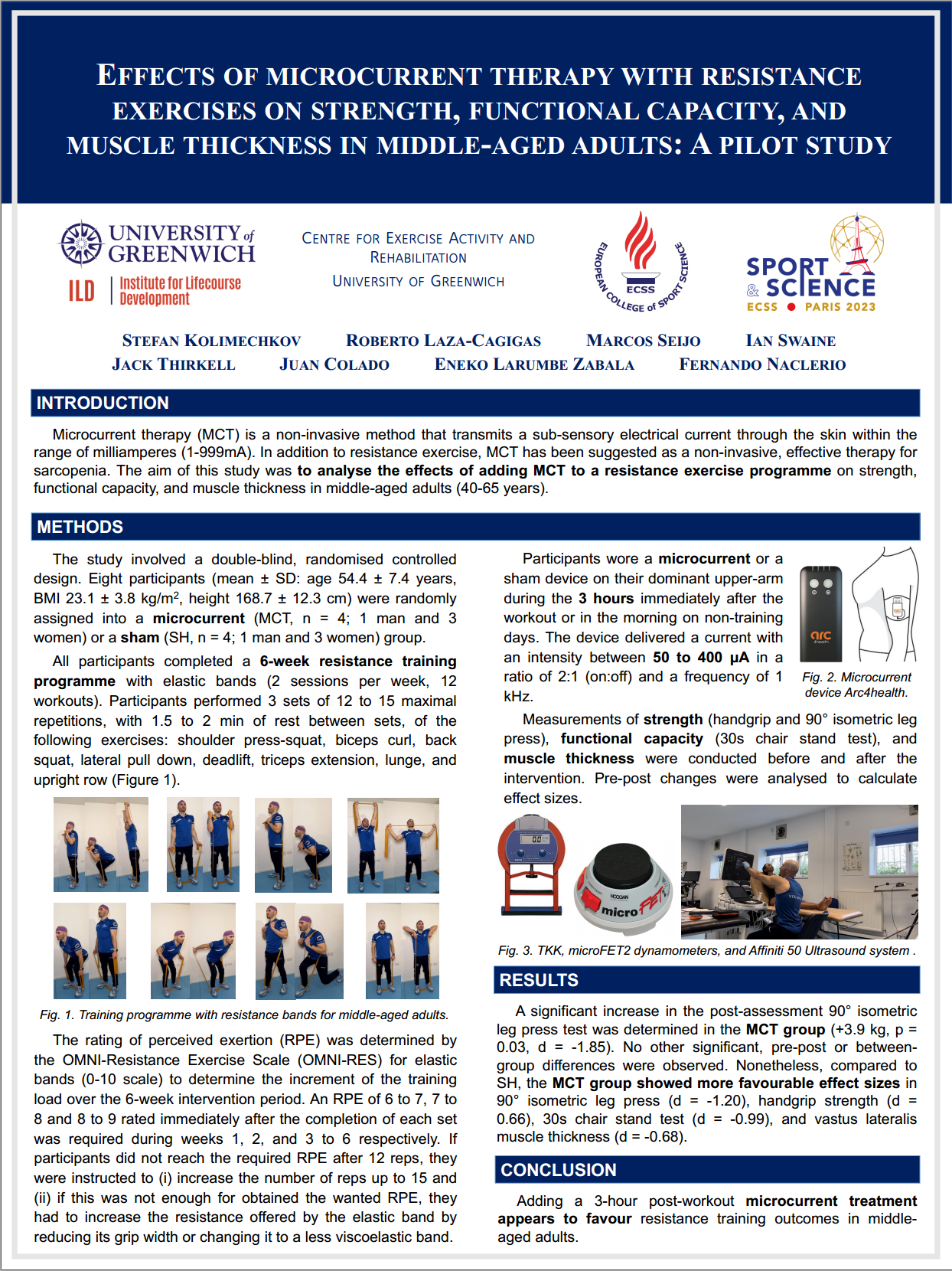ECSS Annual Congress 2023
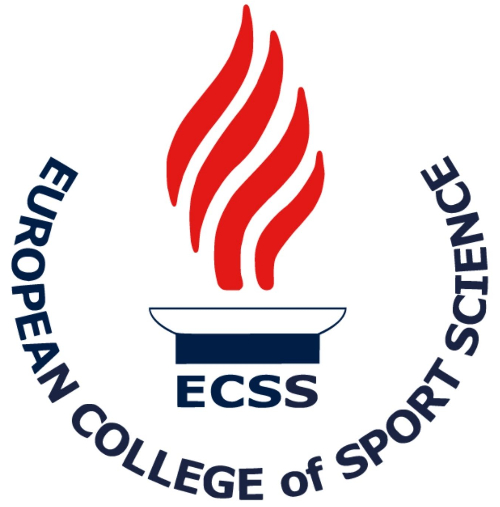
ECSS Paris 2023
28th Annual Congress of the European College of Sport Science (ECSS)
 France, Paris, Palais des congres de Paris
France, Paris, Palais des congres de Paris
www.sport-science.org
watch on YouTube
ABOUT THE CONFERENCE
The European College of Sport Science (ECSS) is the leading association of sport scientists in Europe, and its main scientific event is the ECSS Annual Congress with around 3 000 people participating every year. This year the ECSS Congress was held on 4-7 July 2023 at the Palais des congres de Paris in Paris, France.
OUR CONTRIBUTION
At this Congress I presented pilot data from my PhD project on microcurrent and resistance exercise. Our poster presentation was part of the the official scientific programme at the ECSS Paris 2023. The abstract was published as conference proceedings of the 28th Annual Congress of the ECSS, and together with the poster presentation are now both available to see/download on this page. The study will be built upon further by adding more participants, and the complete findings will be published in an international journal.
Effects of microcurrent therapy with resistance exercises on strength, functional capacity, and muscle thickness in middle-aged adults: A pilot study
Poster Presentation
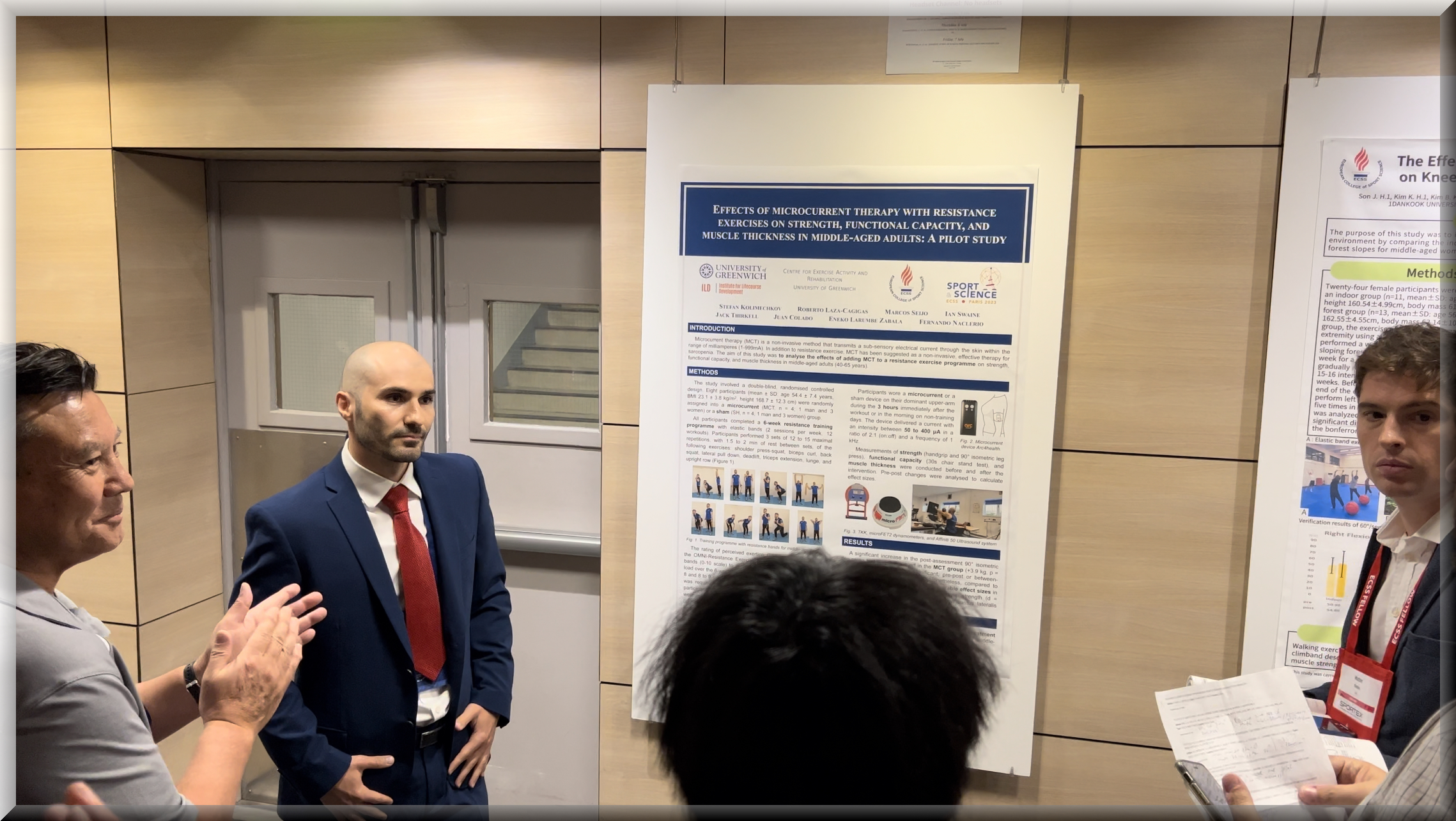
ECSS Paris 2023
28th Annual Congress of the European College of Sport Science
EFFECTS OF MICROCURRENT THERAPY WITH RESISTANCE EXERCISES ON STRENGTH, FUNCTIONAL CAPACITY, AND MUSCLE THICKNESS IN MIDDLE-AGED ADULTS: A PILOT STUDY
Stefan Kolimechkov(1), Roberto Laza-Cagigas(1), Marcos Seijo(1), Ian Swaine(1), Jack Thirkell(2), Juan Colado(3), Eneko Larumbe Zabala(4), Fernando Naclerio(1)
1 Centre for Exercise Activity and Rehabilitation, Institute for Lifecourse Development, University of Greenwich, United Kingdom;
2 Royal Holloway University of London, United Kingdom;
3 Research Group in Prevention and Health in Exercise and Sport, University of Valencia, Spain;
4 Canary Islands Health Research Institute Foundation, Spain
ABSTRACT
INTRODUCTION:
Microcurrent therapy (MCT) is a non-invasive method that transmits a sub-sensory electrical current through the skin within the range of milliamperes (1-999mA). MCT has been suggested as an effective treatment for sarcopenia. The aim of this study was to analyse the effects of adding MCT to a resistance exercise programme on strength, functional capacity, and muscle thickness in middle-aged adults.
METHODS:
The study involved a double blind randomised controlled design. Eight participants (mean ± SD: age 54.4 ± 7.4 years, BMI 23.1 ± 3.8 kg/m2, height 168.7 ± 12.3 cm) were randomly assigned into a microcurrent (MCT, n = 4; 1 man and 3 women) or a sham (SH, n = 4; 1 man and 3 women) group. All participants completed a 6-week resistance training programme with elastic bands (2 sessions per week, 12 workouts). Participants performed 3 sets of 12 to 15 maximal repetitions, with 1.5 to 2 min of rest between sets, of the following exercises: shoulder press-squat, biceps curl, back squat, lateral pull down, deadlift, triceps extension, lunge, and upright row. The rating of perceived exertion (RPE) was determined by the OMNI-Resistance Exercise Scale (OMNI-RES) for elastic bands (0-10 scale) to determine the increment of the training load over the 6-week intervention period. An RPE of 6 to 7, 7 to 8 and 8 to 9 rated immediately after the completion of each set was required during weeks 1, 2, and 3 to 6 respectively. If participants did not reach the required RPE after 12 reps, they were instructed to (i) increase the number of reps up to 15 and (ii) if this was not enough for obtained the wanted RPE, they had to increase the resistance offered by the elastic band by reducing its grip width or changing it to a less viscoelastic band. Participants wore a microcurrent or a sham device on their dominant upper arm during the 3 hours immediately after the workout or in the morning on non-training days. The microcurrent device delivered a current with an intensity between 50 and 400 μA in a ratio of 2:1 (on:off) and a frequency of 1.03 kHz. Measurements of strength (handgrip and 90° isometric leg press), functional capacity (30s chair stand test), and muscle thickness were conducted before and after the intervention. Pre-post changes were analysed to calculate effect sizes.
RESULTS:
A significant increase in the post-assessment 90° isometric leg press test was determined in the MCT group (+3.9 kg, p = 0.03, d = -1.85). No other significant, pre-post or between-group differences were observed. Nonetheless, compared to SH, the MCT group showed more favourable effect sizes in 90° isometric leg press (d = -1.20), handgrip strength (d = 0.66), 30s chair stand test (d = -0.99), and vastus lateralis muscle thickness (d = -0.68).
CONCLUSION:
Adding a 3-hr post-workout microcurrent treatment appears to favour the positive effects of resistance exercise in middle-aged adults.
Presenting Author: Dr Stefan Kolimechkov
Date & time: 6 July 2023, 6:00 - 7:00 pm
Poster Presentations, Palais des congres de Paris, Corridor Rooms 351 - 353
Chairs: Matteo Bonato, PhD [Italy] & Theodoros Bampouras, PhD [UK]
Session-ID: CP-MH16 Ageing II
Abstract-ID: CP-MH16-8
GALLERY, ECSS Paris 2023
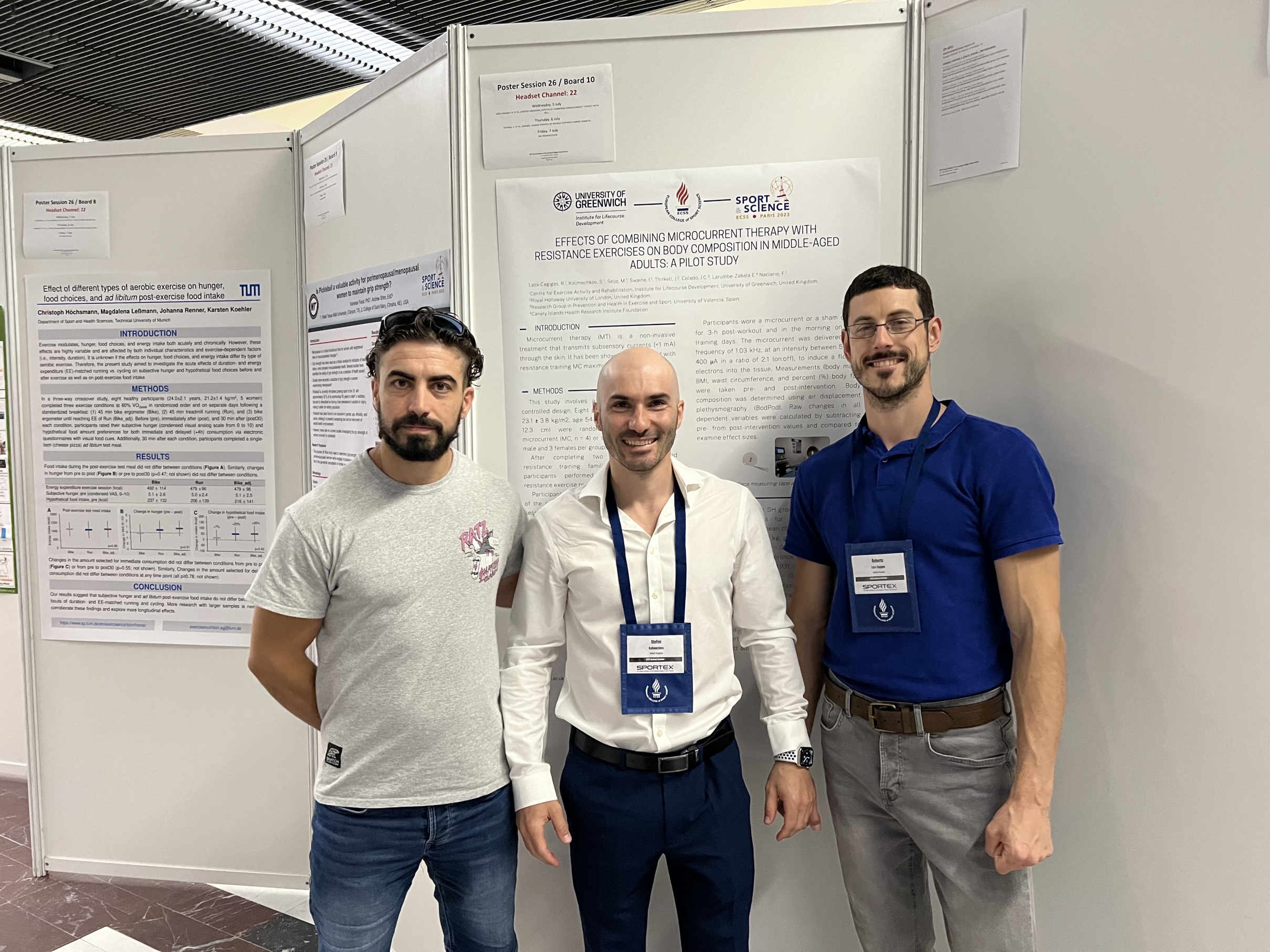
With my colleagues from the CEAR, University of Greenwich, Joel (left) and Roberto (right) at the poster presentations of the ECSS Paris 2023.
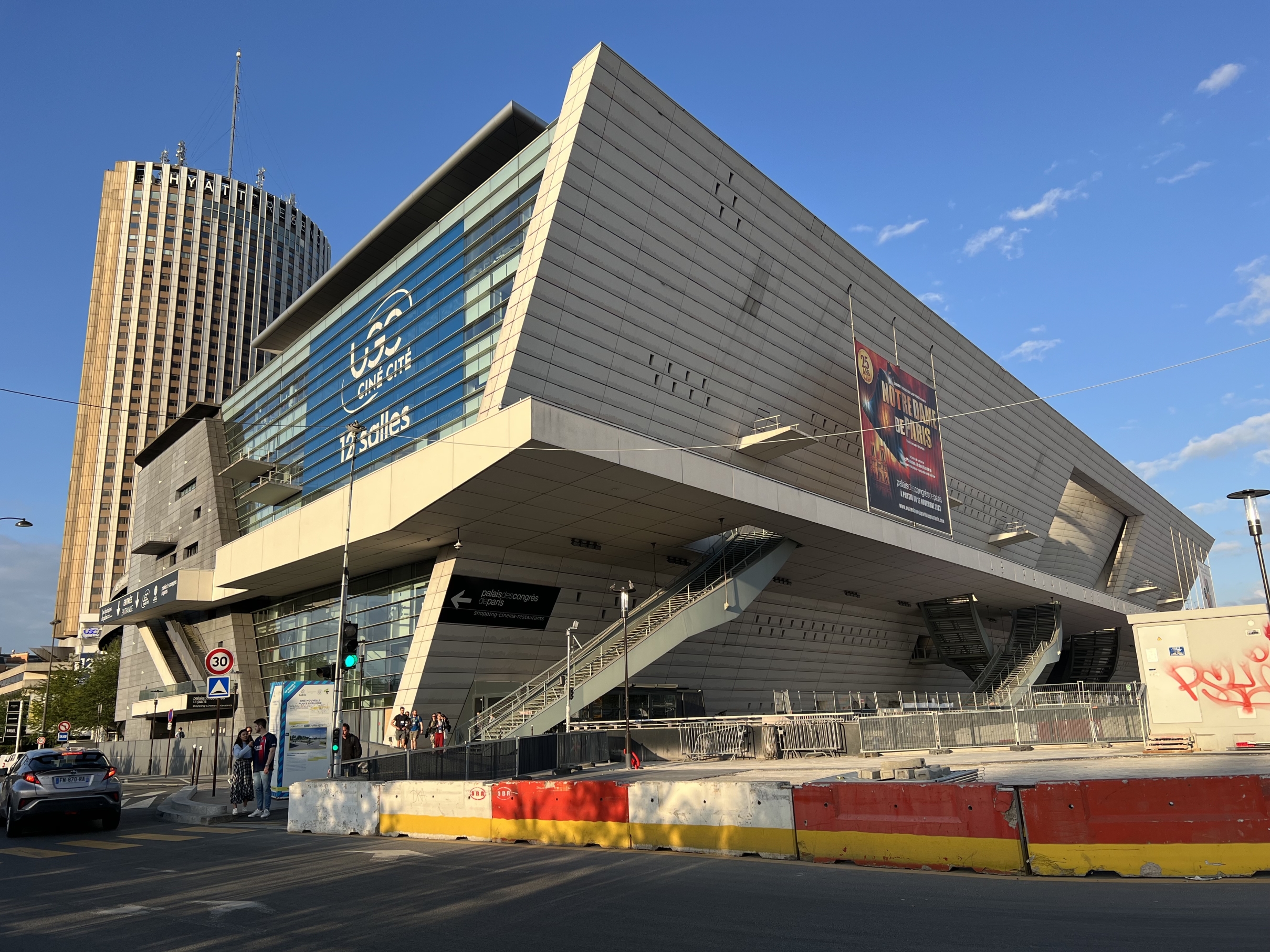
Palais des congres de Paris, the official conference venue which hosted the ECSS Paris 2023.
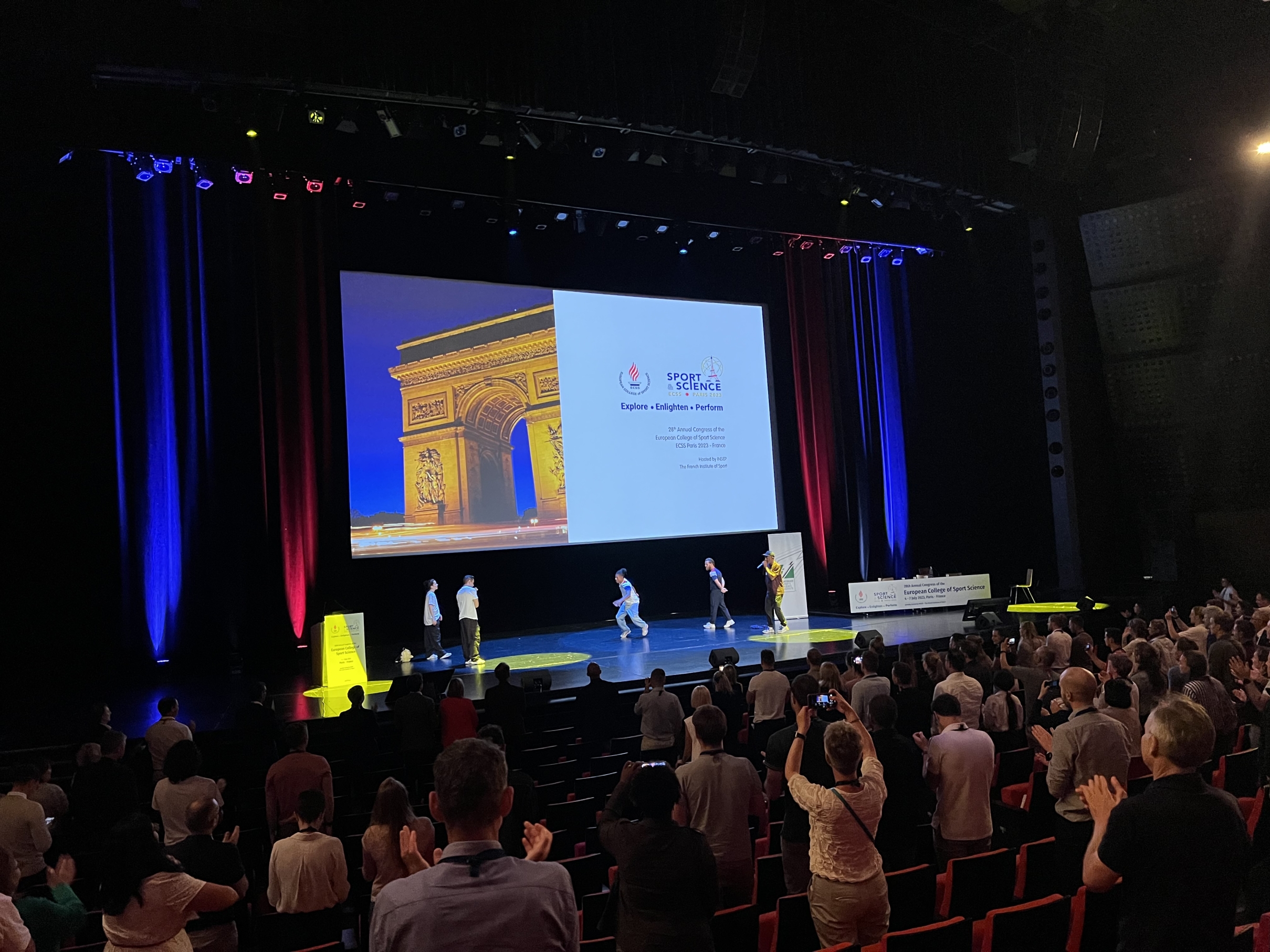
Opening Ceremony of the ECSS Congress in Paris 2023.
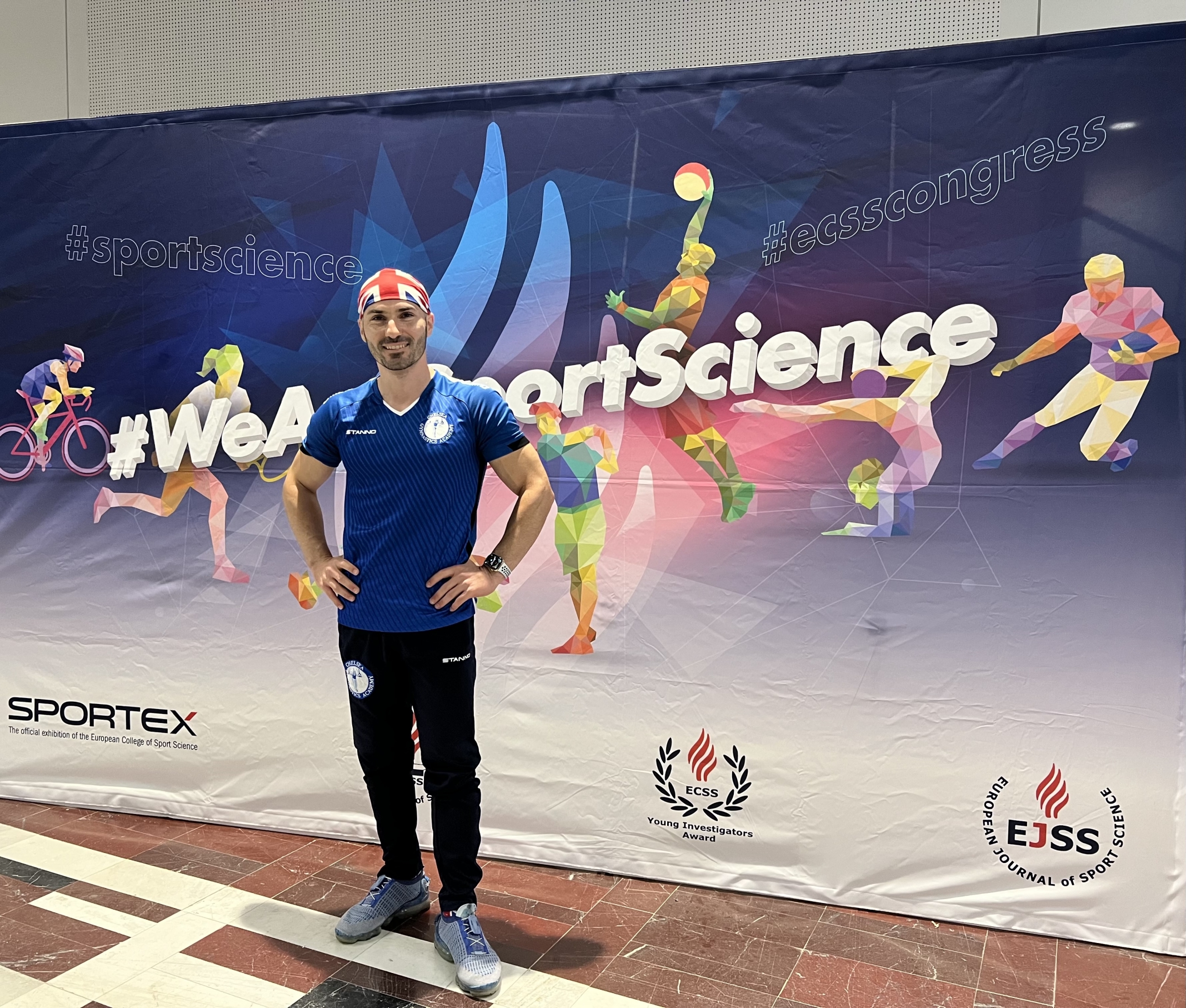
Here I am in my 5th ECSS Congress (2019, 2020, 2021, 2022, 2023). We are Sport Science.
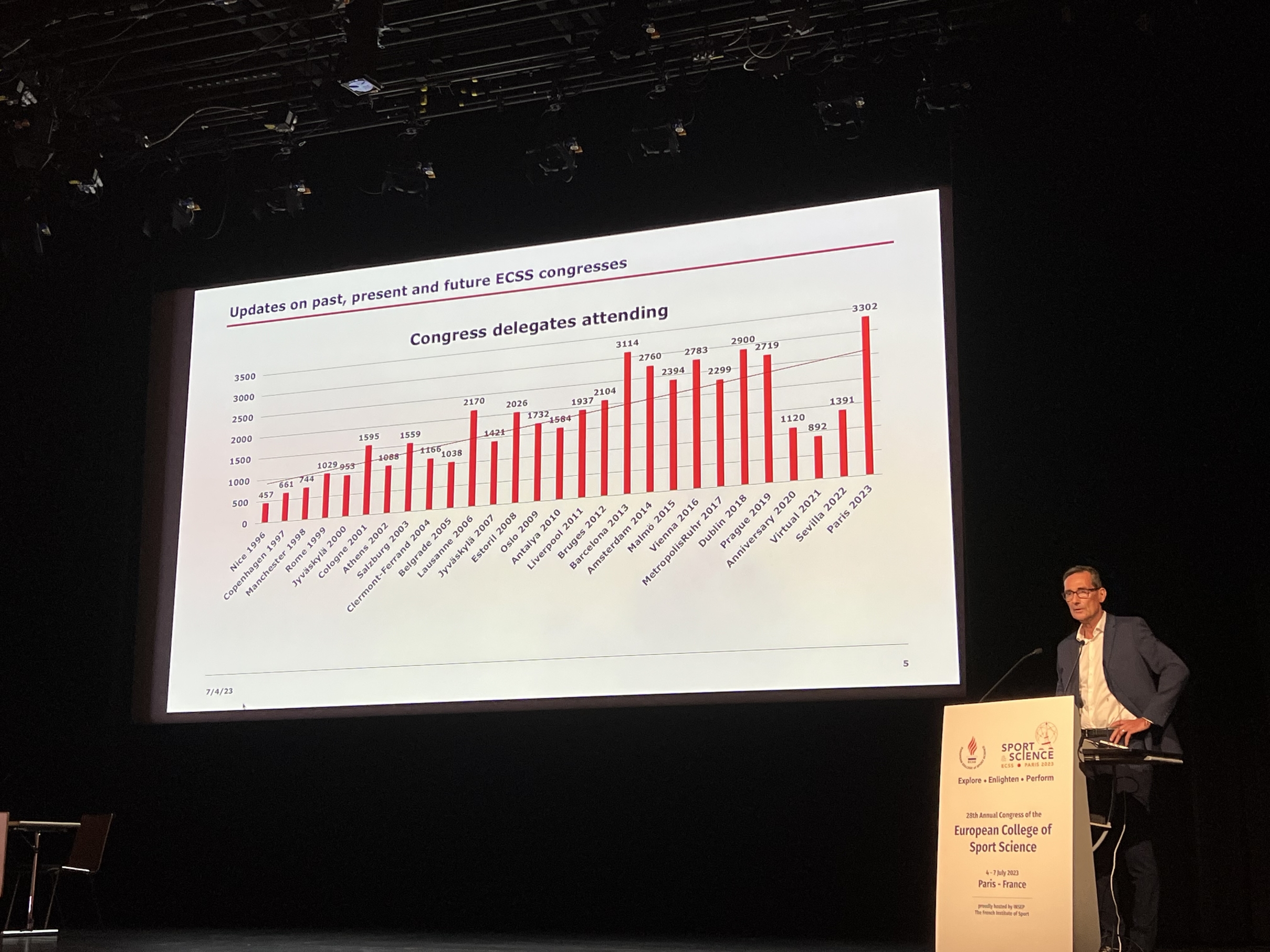
At the General Assembly of the 28th Annual Congress of the ECSS in Paris 2023. This year, we had a record number of participants attending the Congress (total of 3302 delegates from around the world).
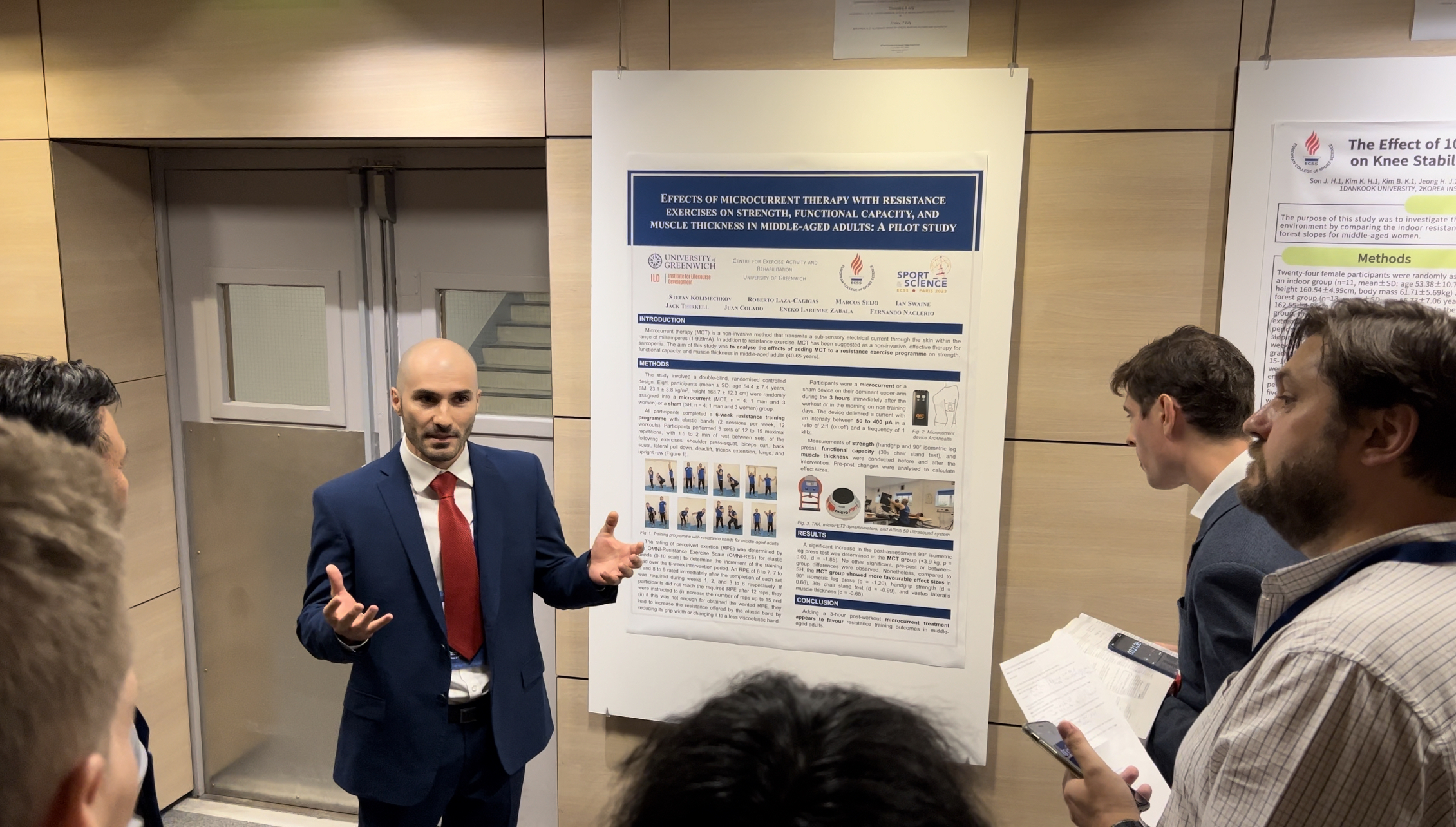
My poster presentation at the ECSS Congress in Paris 2023.
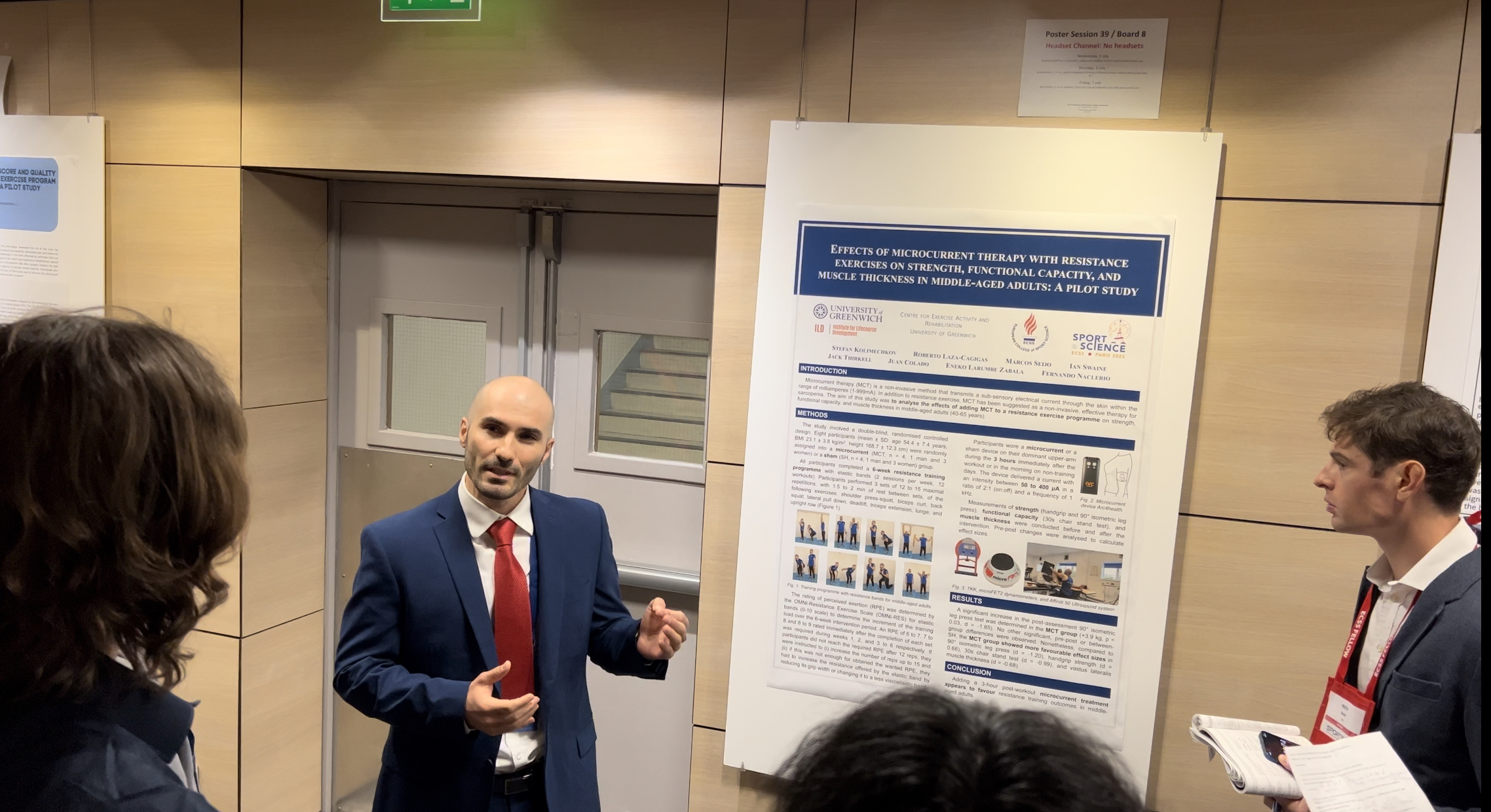
Great opportunity to present my research on microcurrent and exercise in Paris at the ECSS 2023.
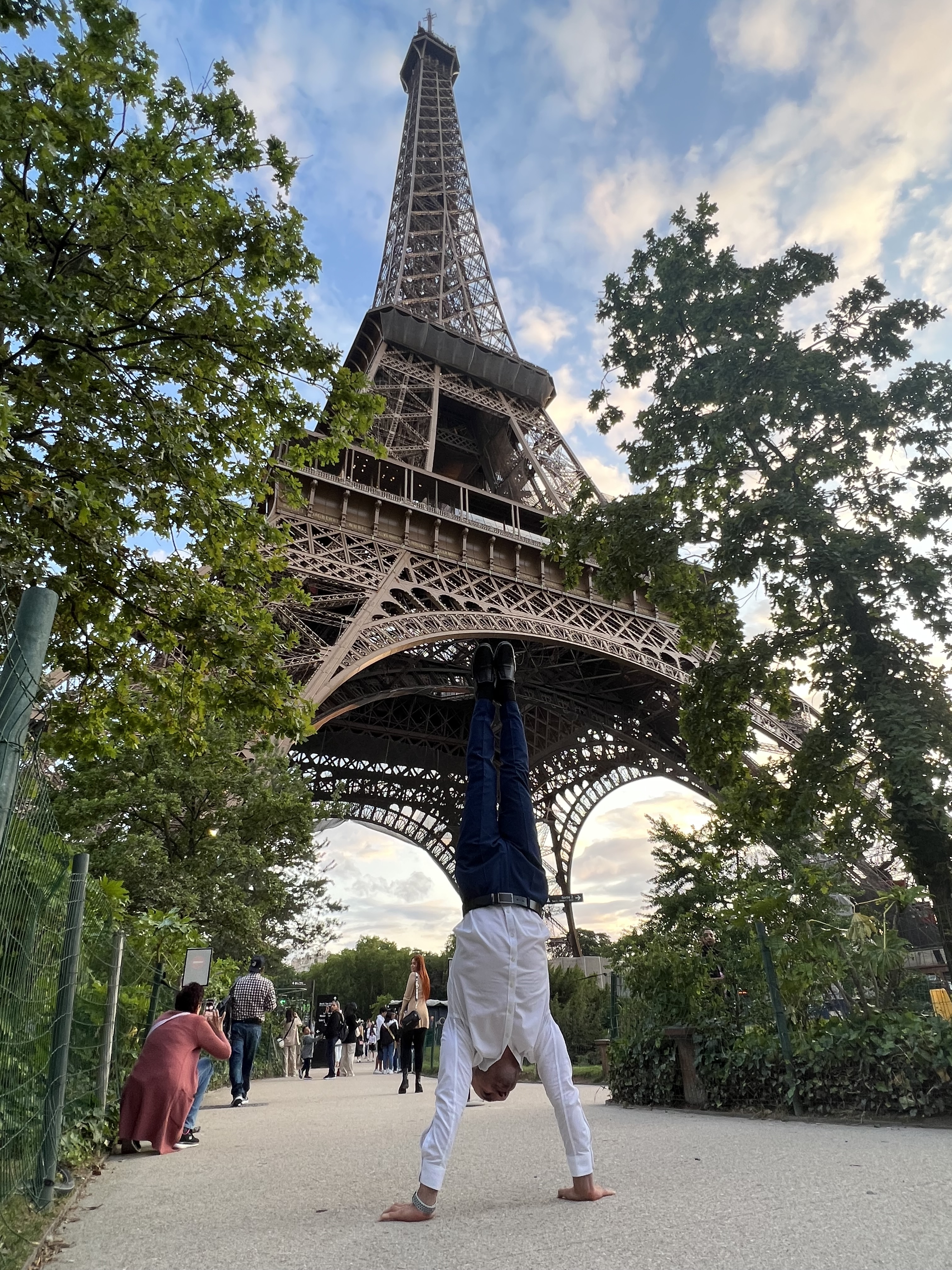
Handstand at the iconic Eiffel Tower in central Paris, France, 2023.
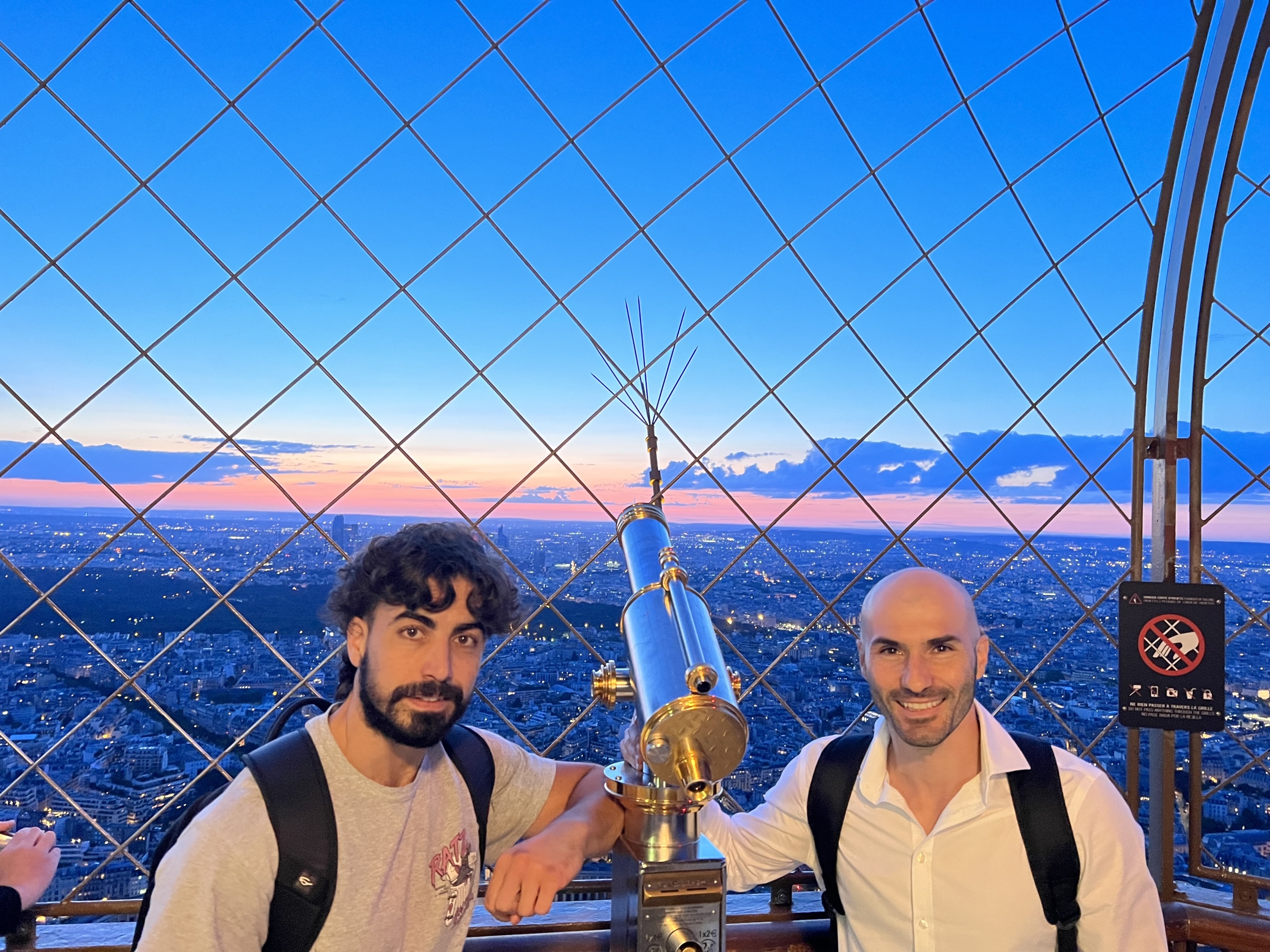
And we went to the top of the Eiffel Tower with my colleague Joel Fernandez in Paris 2023.
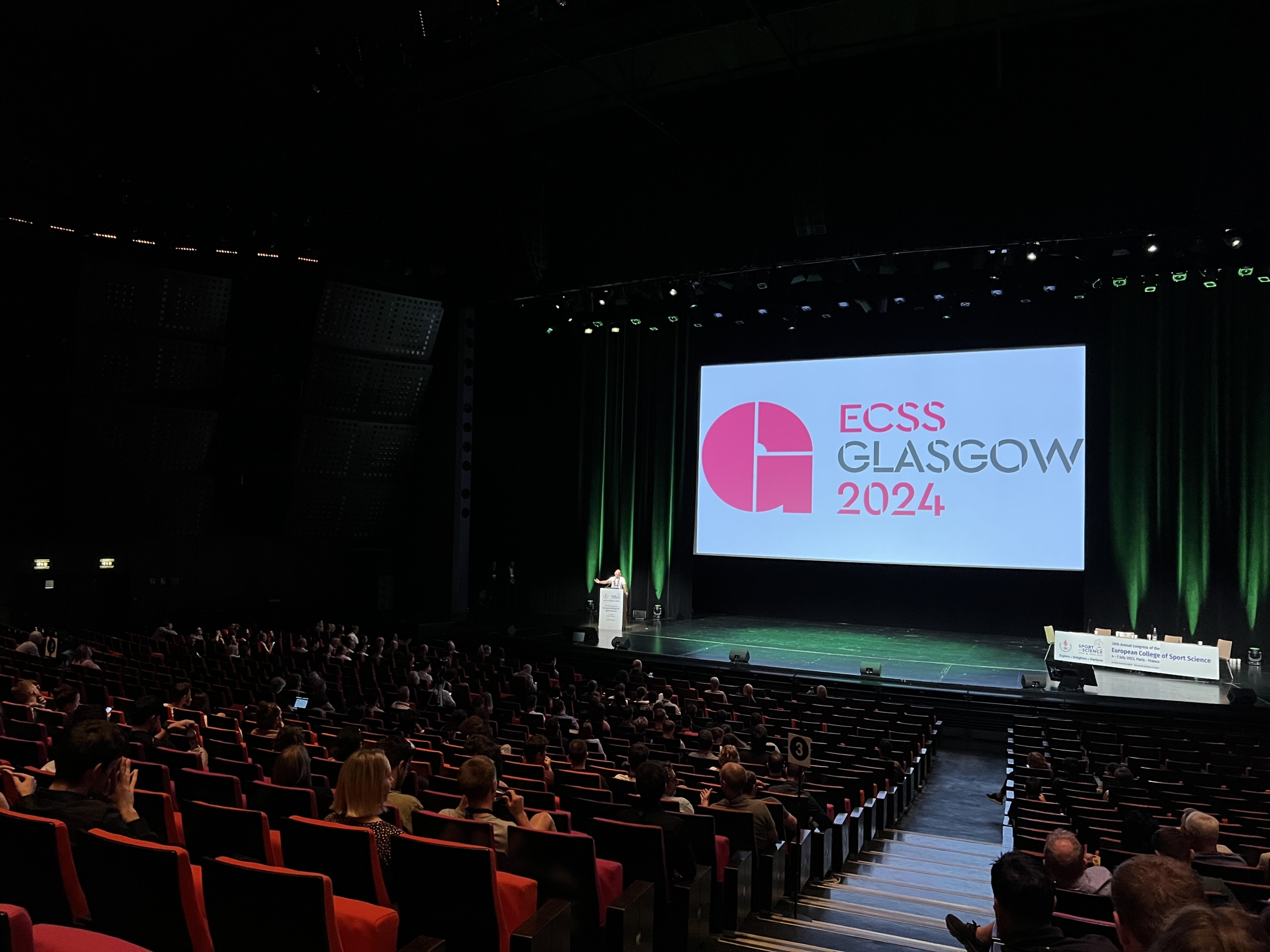
Closing Ceremony of the ECSS Congress in Paris 2023. See you in Glasgow for the ECSS 2024.
In Summary
What an experience that was! Between the 4th and 7th of July 2023, I took part in my fifth ECSS Congress. This year, the Congress was attended by a record number of participants (3 302), and this has been the largest conference I have attended so far. I had the chance to listen to many talks, workshops, poster presentations, invited sessions, etc, and learn about cutting-edge research in sports and exercise science from around the world. I presented a poster entitled ‘Effects of microcurrent therapy with resistance exercises on strength, functional capacity, and muscle thickness in middle-aged adults: A pilot study’. This was part of my PhD project at the University of Greenwich. My poster presentation was 3 min plus 2 min for questions, in addition to having my poster in the conference poster area for one full day. This experience provided me with the chance to share, discuss and receive feedback from researchers from different parts of the world working in similar fields, but using different technologies, populations, and research designs. Thank you ECSS, and I am looking forward to seeing you next year in Glasgow.
How to cite this study:
After the 28th ECSS Congress in Paris, our study will be built upon further and the complete findings will be published in an international journal:
Coming soon...
